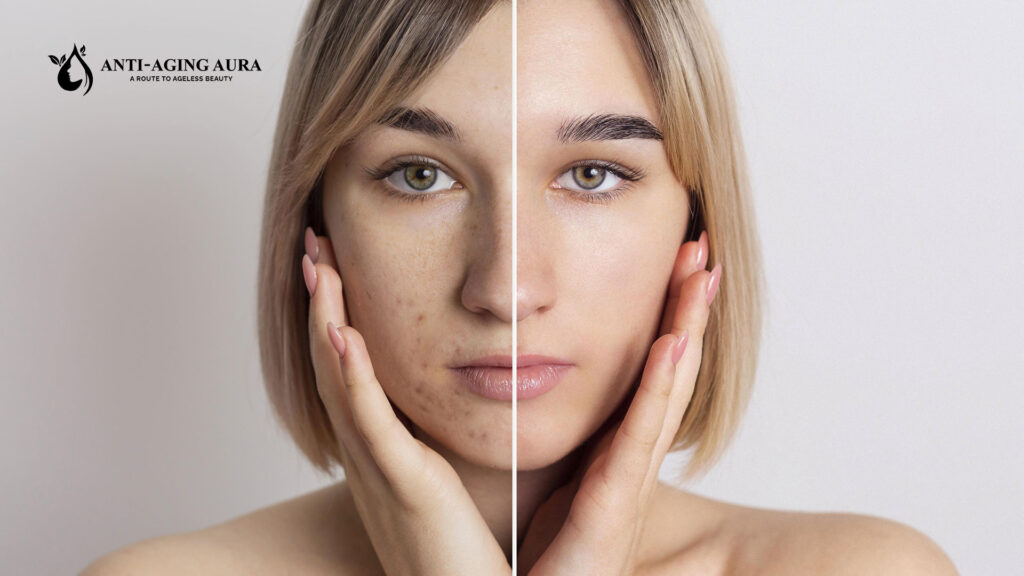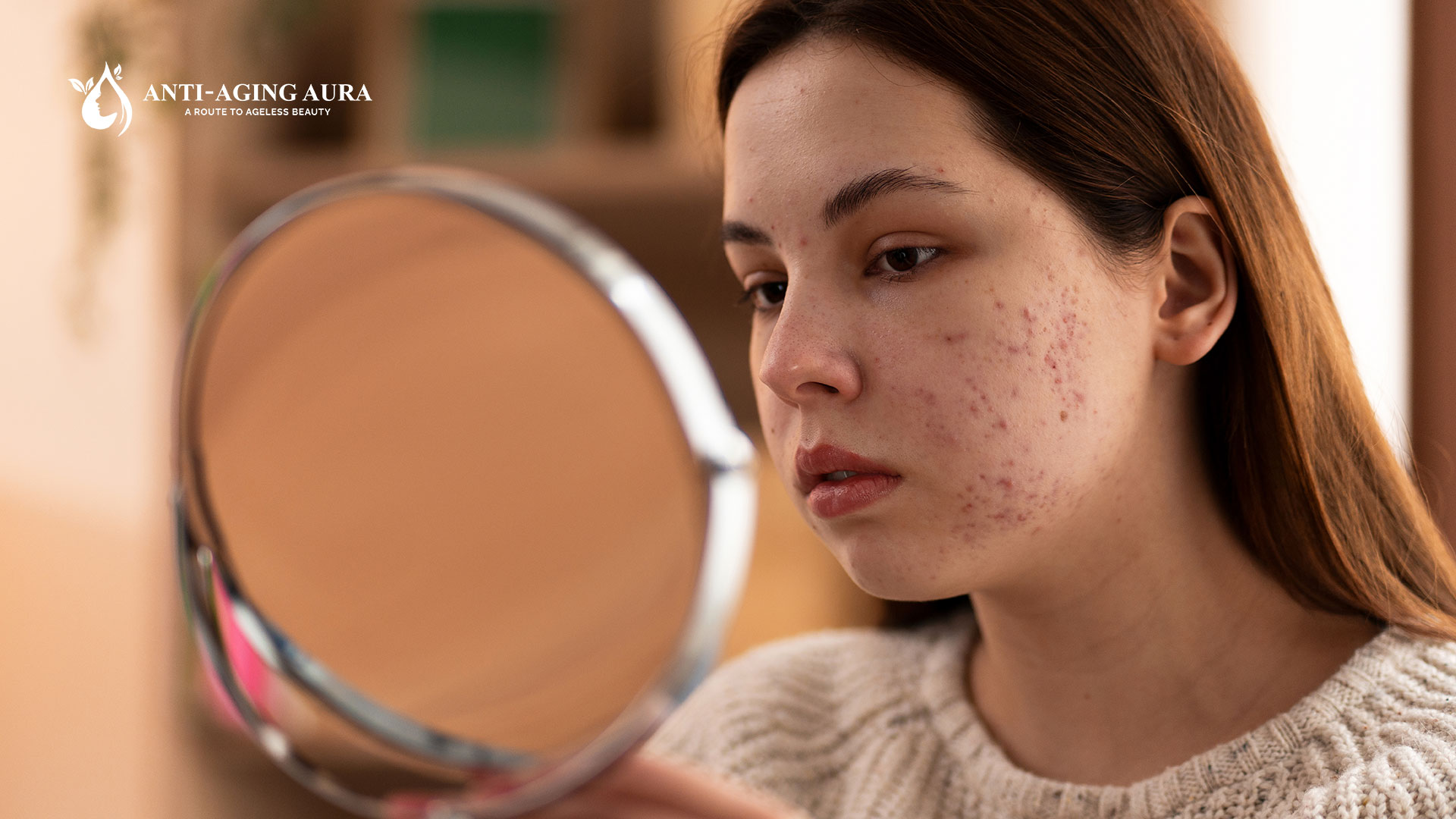Unlocking the Secrets of Flawless Skin
Skin is our body’s largest organ, serving as a protective barrier against environmental aggressors and potential harm. But, in its daily battles against pollution, UV rays, and the natural aging process, it often demands extra care and attention.
Here, the wonder ingredient, retinol, steps in. But, to truly harness its power without the worries of chemicals, one must turn to its organic retinol cream variant.
Understanding the Skin: Its Needs and Desires
Skin is the largest organ of the human body, serving as a protective barrier against physical injuries, harmful microbes, ultraviolet radiation, and dehydration. It also plays crucial roles in temperature regulation, immune response, sensation, and the synthesis of Vitamin D.
The skin is not just an external cover but a living, breathing entity with its own needs. As we age, it undergoes various changes influenced by genetics, exposure, and care (or lack thereof).
Skin’s Basic Needs:
- Hydration: To maintain its elasticity, resilience, and barrier function, skin requires adequate moisture. This can be achieved by drinking enough water and using moisturizers.
- Protection: The skin needs defence against harmful UV rays, pollutants, and other environmental aggressors. Sunscreen, protective clothing, and antioxidant-rich products can help.
- Nutrition: A balanced diet rich in vitamins, minerals, and antioxidants nourishes the skin from the inside. Topically, using products with beneficial ingredients like vitamins A, C, and E can be beneficial.
- Cleansing: Regular cleaning helps remove dirt, excess oils, and dead skin cells, preventing clogged pores and breakouts.
- Exfoliation: Periodic removal of dead skin cells can brighten the complexion and promote cellular turnover.
- Rest: Just like the rest of the body, skin repairs and regenerates itself during sleep.
Key Skin Concerns:
- Aging: Wrinkles, fine lines, and sagging skin are natural consequences of aging.
- Sun Damage and Hyperpigmentation: Prolonged exposure to the sun can cause sunspots, tanning, and an uneven skin tone.
- Dehydration: Dryness can make the skin appear flaky and can exacerbate other issues.
- Acne and Breakouts: Pimples, blackheads, and whiteheads caused by clogged pores, bacteria, and overactive sebaceous glands.
- Sensitive Skin and Redness: Skin that easily gets irritated, leading to redness, burning, or itching sensations.
- Loss of Elasticity and Firmness: Sagging skin due to decreased collagen and elastin fibers.
- Enlarged Pores: Visible and often clogged pores due to excess sebum production and decreased skin elasticity.
- Dullness: Lack of radiance and vitality in the skin, often due to dead skin cells and poor circulation.
- Dark Circles and Puffiness Under Eyes: Indicators of fatigue, aging, or genetic predisposition.
- Eczema and Rosacea: Chronic skin conditions that result in redness, inflammation, and sometimes scaling.
Desires for Youthful Skin:
- Reduced Wrinkles: As skin ages, it produces less collagen and elastin, leading to fine lines and wrinkles. Products containing retinoids, peptides, and hyaluronic acid can help address this.
- Firmness: A loss of firmness is a hallmark of aging skin. Firming creams, treatments like microcurrent therapy, and facial exercises can help improve skin’s elasticity.
- Even Skin Tone: Over time, sun damage and other factors can cause hyperpigmentation. Brightening serums, chemical peels, and laser treatments can help even out skin tone.
- Smooth Texture: Aging and sun damage can lead to rough, uneven skin texture. Regular exfoliation, hydrating masks, and treatments like microdermabrasion can help achieve a smoother texture.
- Radiance: Over time, skin can lose its natural glow due to dead skin buildup and decreased circulation. Vitamin C serums, facial massages, and regular exfoliation can boost skin radiance.
- Minimized Pores: While pore size is largely genetic, they can appear larger with age. Products with niacinamide, salicylic acid, and clay masks can help minimize their appearance.
Why Organic Retinol Cream?
There’s a world of difference between regular retinol and its organic counterpart. The former is often synthesized in labs, sometimes derived from animal sources, while organic retinol ensures a plant-based, chemical-free solution.
Our top picks of the 5 Best Organic Retinol Creams
Advantages of using Organic Retinol:
While retinol itself is a powerhouse, when derived organically, its benefits are magnified.
- Less Irritation: The absence of chemicals means less irritation for sensitive skin.
- Environmentally Friendly: Organic farming practices are sustainable.
- Effective Results: Natural ingredients often work in harmony with the skin, making them more effective.
- Reduced Side Effects: Organic retinol creams often have a gentler formulation, minimizing redness, peeling, and dryness commonly associated with synthetic versions.
- Enhanced Efficacy: Packed with natural antioxidants and botanicals, these creams can enhance skin’s absorption and effectiveness.
- Free from Harmful Additives: No parabens, sulfates, or artificial fragrances that can be detrimental to skin health.
- Eco-friendly Packaging: Many organic brands prioritize sustainable and biodegradable packaging.
The Science Behind Retinol
Retinol, or Vitamin A, is a fat-soluble vitamin found in food and is crucial for vision, growth, and many cellular functions. In skincare, it promotes skin renewal, brightens skin tone, reduces acne, and boosts collagen production. Its organic version assures these benefits minus any potential chemical harm.
Organic Retinol in Action
- For Aging Skin: Anti-aging retinol cream boosts collagen production, which in turn reduces wrinkles and fine lines.
- For Sun Damaged Skin: Retinol can help fade sunspots and improve texture.
- For Dry Skin: Many retinol moisturizer creams for the face provide hydration while ensuring the benefits of retinol.

Retinol Around the World
The skincare markets in countries like the USA, Canada, and South Korea are rife with retinol products. Salons, spas, and dermatologists often incorporate retinol treatments in their regimens.
It’s vital to note that while retinol is universally beneficial, it’s essential to choose the right product type depending on the skin’s needs and region-specific concerns.
Frequently Asked Questions
Are there side effects to using retinol face moisturizer?
Initial use can cause mild irritation, but this often subsides. Always do a patch test.
Can I use natural retinol cream during the day?
It’s best used at night since organic retinol cream can make your skin sensitive to the sun.
Is natural retinol for skin safe during pregnancy?
Consult a dermatologist. Some suggest avoiding retinol during pregnancy.
Final Thoughts
With the ever-evolving field of skincare, organic retinol cream stands tall as a beacon of hope for many skin concerns. It’s not just a trend but a testament to combining nature with science for optimal skin health.

